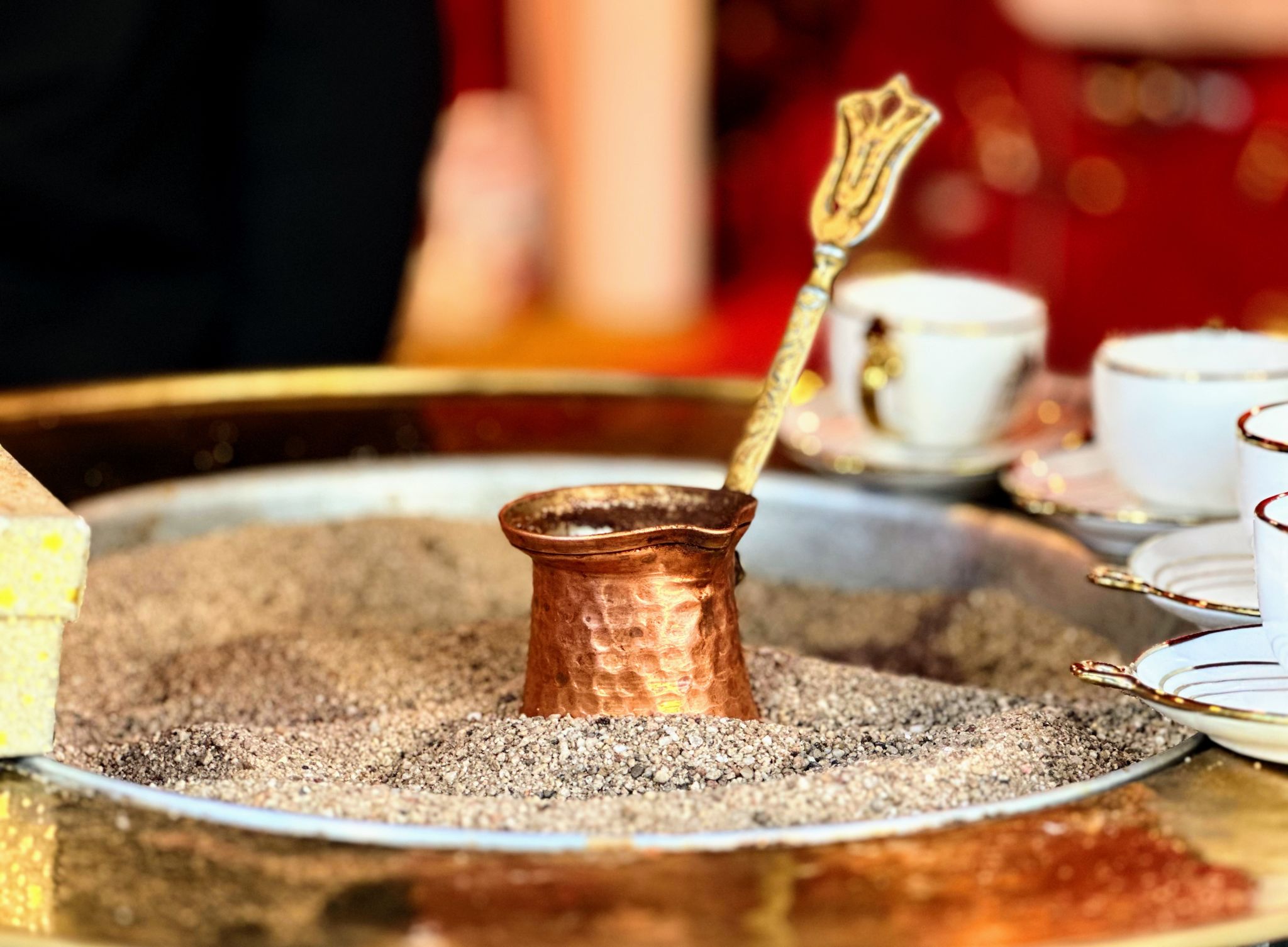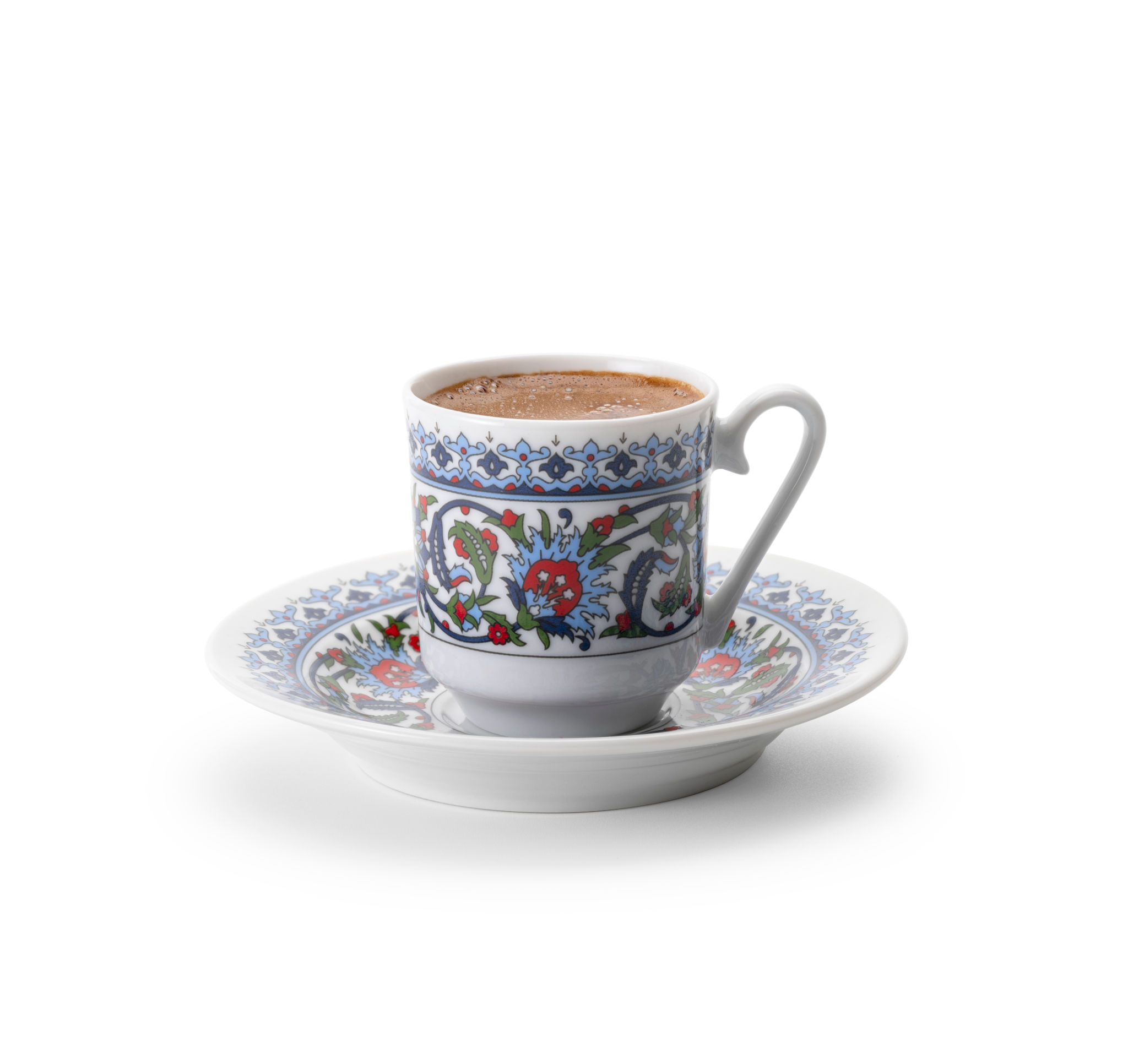Exploring the Rich History of Middle Eastern Coffee Culture
TM
Introduction to Middle Eastern Coffee Culture
The rich aroma of coffee is synonymous with the Middle East, a region where the drink has a profound cultural and historical significance. Known for its intricate preparation and deep-rooted traditions, Middle Eastern coffee culture extends far beyond a simple morning ritual. It is a symbol of hospitality, a social binder, and an essential part of daily life.
The origins of coffee can be traced back to the ancient coffee forests of Ethiopia, but it is in the Middle East where coffee culture truly flourished. From the bustling coffeehouses of Istanbul to the serene desert settings of the Arabian Peninsula, coffee plays a pivotal role in the region's social and cultural fabric.

The Birthplace of Coffee: Yemen
Yemen holds a special place in the history of coffee. It was in this country that coffee was first cultivated as a commercial crop. By the 15th century, Sufi monasteries in Yemen were using coffee as an aid to concentration during prayers. The port city of Mocha became a hub for coffee trade, giving the world the term "mocha" that we still use today.
Yemeni coffee is known for its unique flavor profile, often described as complex and rich. The traditional Yemeni brewing method involves a clay pot called "ibric," where coffee is boiled with water and spices, creating a distinctive, aromatic beverage.
Coffeehouses: The Social Hubs
Coffeehouses have been central to Middle Eastern social life since their inception in the Ottoman Empire. Known as "qahveh khaneh" in Persian and "kahvehane" in Turkish, these establishments were more than just places to drink coffee. They were meeting spots for intellectuals, artists, and politicians to engage in conversation, debate, and entertainment.

These coffeehouses played a critical role in spreading ideas and fostering community spirit. They were venues for poetry readings, musical performances, and chess games. In many ways, they were the birthplace of modern café culture.
Traditional Brewing Methods
Middle Eastern coffee is distinct not only for its flavor but also for its preparation techniques. One of the most renowned methods is Turkish coffee, known for its strong taste and thick texture. It is brewed in a special pot called "cezve" and served unfiltered, allowing the grounds to settle at the bottom of the cup.
Another popular method is Arabic coffee or "qahwa," which is often spiced with cardamom and served in small cups known as "finjan." This version of coffee is lighter than Turkish coffee and is typically enjoyed with dates or other sweets.

The Rituals and Etiquette
Coffee drinking in the Middle East is steeped in rituals and etiquette. Serving coffee is a sign of hospitality, and it is customary to offer it to guests as a welcoming gesture. The process of making and serving coffee is often ceremonial, reflecting respect and honor for the guests.
The host usually pours the coffee, starting with the eldest or most important guest. It's customary to serve at least three cups per guest, symbolizing generosity. Leaving a cup unfinished may imply that you are not satisfied, so guests are encouraged to drink their fill.
Coffee's Cultural Impact
The influence of Middle Eastern coffee culture extends beyond its borders. The methods and traditions have traveled across continents, influencing global coffee culture. The practice of gathering over a cup of coffee has become a universal symbol of connection and community.

In recent years, there has been a resurgence of interest in traditional Middle Eastern brewing methods around the world. Coffee enthusiasts appreciate the depth and complexity these ancient techniques bring to the beverage, keeping the rich history of Middle Eastern coffee culture alive.
Conclusion
Exploring the history of Middle Eastern coffee culture offers a glimpse into the region's vibrant traditions and social dynamics. Whether enjoyed in a bustling café or a quiet home gathering, coffee remains an integral part of Middle Eastern life and an enduring symbol of hospitality and friendship.
